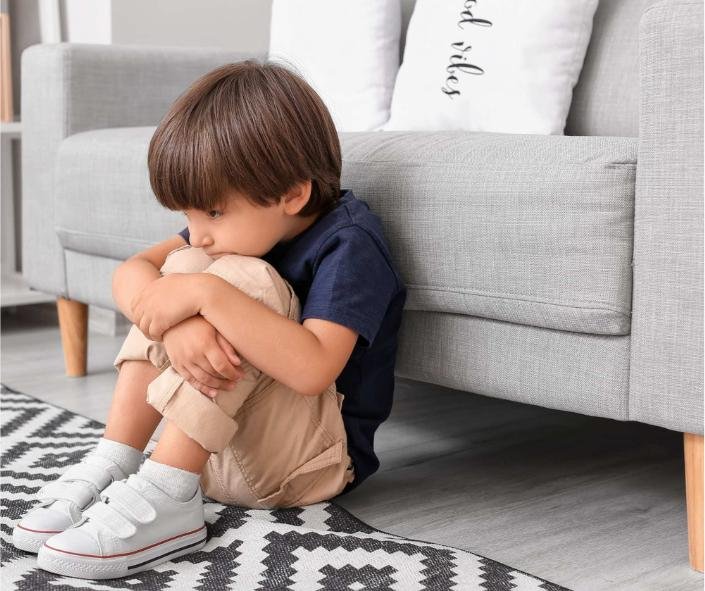Blog Topics Shortcut
- ADHD 12
- Accent Modification 9
- Apraxia 5
- Autism 9
- Bilingual 2
- Cluttering 3
- Cognitive Communication 15
- Down Syndrome 3
- Dysarthria 15
- Early Intervention 17
- Executive Function 21
- Gender Affirming Voice 13
- General Speech Therapy 33
- Language Skills 38
- Neurodivergence 34
- Parkinson's/LSVT LOUD 15
- Phonological Processing 13
- Professional Communication 69
- Public Speaking 60
- Social Skills 7
- Speech & Articulation 53
- Stroke/Aphasia 31
- Stuttering 19
- Swallowing 2
- TBI & Neurological Disorders 14
- Telehealth 9
- Tips for Parents 42
- Tongue Thrust 2
- VCD 3
- Voice 54
- Voice & Performance Coaching 17
How to Improve Speech Articulation
Clear, confident speech makes everyday communication easier and more effective. Many adults look for ways to improve speech articulation when certain sounds feel unclear, rushed, or difficult to pronounce. With increased awareness, consistent practice, and targeted strategies, articulation can improve and support clearer conversations, meetings, and public speaking.
How to Improve Articulation After a Brain Injury
Improving articulation after a brain injury takes patience, consistency, and the right support to rebuild the brain pathways involved in speech. With steady practice, targeted exercises, and guided strategies, many people regain clearer sounds, smoother speech, and stronger daily communication skills. This article walks you through practical, research-supported steps that help restore articulation and boost confidence during recovery.
Searching for an Articulation Coach? Here’s What You Actually Need
Many people think they need an articulation coach, but in reality, a licensed speech-language pathologist provides the expert guidance that leads to lasting change. Through structured exercises, real-time feedback, and strategies tailored to each client, speech therapy improves both clarity and confidence in communication.
L Words Speech Therapy for Children Struggling With L Sounds
Many children struggle with the L sound, often replacing it with a Y or W, which can make everyday words harder to understand. With the right practice and guidance, children can learn correct tongue placement and build confidence in their speech. This blog explores why the L sound can be challenging, when to seek support, and how speech therapy can make a lasting difference.
Does Dyslexia Affect Speech? Understanding the Relationship
Dyslexia is often linked to reading struggles, but it also affects spoken language, making word retrieval, pronunciation, and organizing thoughts more challenging. These difficulties can impact daily communication, from classroom participation to workplace discussions, sometimes leading to hesitation or frustration. With the right support and strategies, individuals with dyslexia can strengthen their verbal skills and communicate with greater confidence.
The Effects of Hearing Loss on Speech and Language Development
Hearing loss can profoundly impact a child’s speech and language development, affecting their ability to communicate effectively. Early intervention, including speech therapy and assistive devices, helps children overcome these challenges and achieve developmental milestones. Timely support fosters improved communication skills, confidence, and success in social and academic settings.
Speech Therapy for Late Talkers: Helping Kids Find Their Voice
Hearing your child’s first words is a moment every parent treasures, but when those words take longer to arrive, it can spark worry and questions about the best way to help. Speech therapy offers tailored support for late talkers, using evidence-based strategies to build their vocabulary, enhance sentence formation, and foster confidence. With early intervention and guidance, late talkers can find their voice and thrive in their communication journey.
What is a Lisp? Understanding the Causes and Treatment Options
Lisps are a common speech challenge, often impacting the clarity of sounds like “s” and “z.” They can stem from various causes, such as tongue placement, dental alignment, or developmental patterns, and may persist beyond childhood without intervention. Fortunately, speech therapy offers targeted strategies to address lisps, helping individuals of all ages achieve clear and confident communication.
Einstein Syndrome Explained: Delayed Speech and High Intelligence
Einstein Syndrome describes children with delayed speech but remarkable intelligence, challenging the typical correlation between early speech and high intellect. Named after Albert Einstein, who reportedly spoke late, this phenomenon underscores the unique cognitive pathways of gifted individuals. Speech therapy and tailored support can help these children communicate effectively while fostering their intellectual strengths.
How to Fix TH Articulation Problems with Speech Therapy
TH articulation problems can significantly impact communication clarity, particularly for children learning to speak. Speech therapy offers targeted strategies to address these issues effectively, such as tongue placement exercises and airflow control techniques. Individuals can improve their articulation through personalized treatment plans, ensuring they produce the /th/ sound accurately in both voiced and voiceless forms.
Speech Sound Disorder: Discovering and Addressing Problems
Speech sound disorders (SSDs) can significantly impact a child's ability to communicate, leading to challenges in social interactions and academic performance. This article explores the types, causes, and symptoms of SSDs, emphasizing the importance of early diagnosis and intervention.
At What Age Should a Child Start Talking Clearly?
Understanding when a child should start talking clearly involves recognizing various stages of speech development. From babbling in infancy to forming simple sentences by age two, each phase builds toward clearer communication. Monitoring these milestones and addressing potential issues early can support your child's journey to effective speech and language skills.
A Guide to Intellectual Disability and Speech Delay in Children
Intellectual disability and speech delay are developmental challenges that profoundly affect a child's communication abilities and daily functioning. Early diagnosis and intervention through tailored therapies and a multidisciplinary approach can significantly improve outcomes and support the child's overall development.
4-Year-Old Speech Milestones: What Parents Should Know
By age four, children typically reach several key speech milestones that mark their growing communication abilities. Most children at this age can speak in sentences with four or more words, incorporating complex words. These advancements lay the foundation for effective communication and social interaction, enabling them to express feelings, describe their surroundings, and engage in more nuanced conversations.
Types of Lisps: How to Identify and Address Them
Lisps are common speech disorders that affect pronouncing sounds like /s/ and /z/, often leading to unclear communication. Effective treatment usually involves speech therapy and at-home practices, crucial for preventing long-term speech issues and enhancing communication skills.















